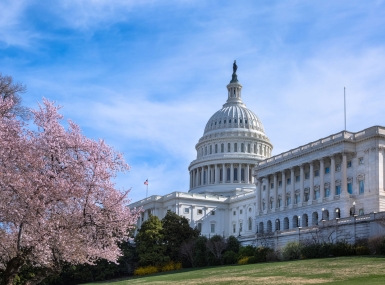U.S. House Passes Delivering for America Act to Protect U.S Postal Service (USPS)
Upcoming Events
Related News

Key Takeaways
On August 22, 2020, the U.S. House of Representatives passed, H.R. 8015, the Delivering for America Act by a vote of 257-150. As a result of this legislation, the U.S. Postal Service (USPS) would receive $25 billion in aid, and it would specifically allocate $15 million towards USPS employee salaries. In addition to this new funding, the House bill would prohibit USPS from implementing any changes to operations or the level of service it has in place on January 1, 2020.
On the other side of the Capitol, the U.S. Senate has also engaged in negotiations around providing additional funds to USPS. On August 18, the Senate released a proposal, the Delivering Immediate Relief to America’s Families, Schools and Small Businesses Act, which would provide $10 billion to the USPS to ensure operations are strong going into the 2020 election. The Senate has not yet voted on this proposal.
After both the House and Senate introduced legislation to allocate new funds to USPS, Postmaster General Louis DeJoy announced that all operational changes would be deferred until after the 2020 election.
NACo will continue to monitor any developments around this issue.
Related News

National Association of Counties and cashVest by three+one Announce $1.3 Billion in New Revenue for Public Agencies in 2024
NACo and cashVest by three+one today announced their collaborative efforts generated over $1.3 billion in new revenue for public entities in 2024, while simultaneously saving them millions in bank fees. This achievement highlights the impact of untapped sources of revenue, providing essential financial stability during uncertain times.

County Countdown – March 25, 2025
Every other week, NACo's County Countdown reviews top federal policy advocacy items with an eye towards counties and the intergovernmental partnership. This week features budget reconciliation, FY 2025 funding and more.

Congress passes “full-year” Continuing Resolution through September 30, 2025
On March 14, the U.S. Senate voted to pass the Full-Year Continuing Appropriations and Extensions Act of 2025 to further extend appropriations and avert a government shutdown through the end of Fiscal Year (FY) 2025 on September 30.
